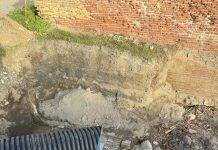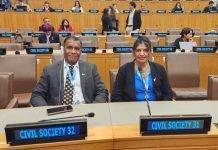GREAT BAY, Sint Maarten (DCOMM) – The Collective Prevention Services (CPS), a department of the Ministry of Public Health, Social Development and Labour, is calling on the community and visitors to practice proper hand hygiene and cough etiquette in order to prevent the spread of viruses and infectious diseases especially during the post-Hurricane Irma/Maria period.
Keeping hands clean through proper hand hygiene and cough etiquette which are two of the most important steps one can take to avoid getting sick and spreading germs to others. Washing your hands correctly should take at least 40 to 60 seconds.
Many infectious diseases and conditions are spread by not washing hands properly with soap and clean, running water. If clean, running water is not accessible, as is common in many parts of the world, use soap and available water. You can also use an alcohol-based hand sanitizer that contains at least 60 per cent alcohol to clean hands.
Your hands should be washed before, during, and after preparing food; before eating food; after using the toilet; after blowing your nose, coughing, and/or sneezing.
As some viruses are airborne, the flu is one clear example. This can spread from person to person through coughing, or sneezing particles into the air.
Flu viruses also may spread when people touch something with the flu virus on it and then tough their mouth, eyes, or nose. Many other viruses are also transmitted in this manner.
People infected with highly infectious diseases should avoid close contact with healthy persons and consistently maintain proper hand hygiene and cough etiquette. Considering persons may be asymptomatic with infectious disease, it is recommended to make hand hygiene and cough etiquette a behavioral habit to prevent transmission.
Persons with flu may be able to infect others beginning from day one before symptoms develop and up to five to seven days after becoming sick. That means you may be able to spread the flu to someone else before you know you are sick, so when you are asymptomatic.
Preventive actions entails: try to avoid close contact with sick people; cover your nose and mouth with a tissue when you cough or sneeze (cough etiquette); throw the tissue in the trash after you use it; clean and disinfect surfaces and objects that may be contaminated with germs/bacteria/viruses.
Hand hygiene and cough etiquette are simple and effective actions to reduce the spread of infectious diseases and multi-resistant germs.
Collectively let us protect the community by making hand hygiene and cough etiquettes a common habit.






























